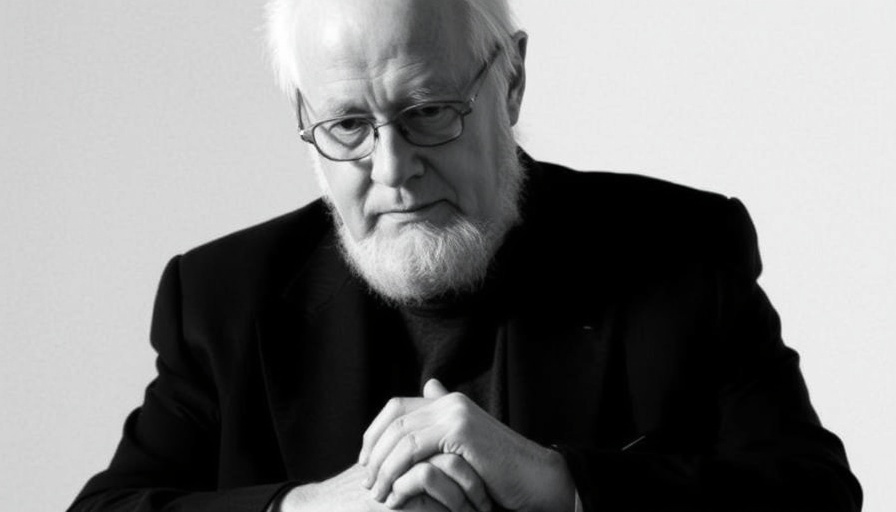
Spotlight: A Complex Feelgood Movie Experience
When we think of feelgood films, what often comes to mind are light-hearted comedies or romantic dramas that leave us with an uplifting sense of joy. However, Tom McCarthy's Spotlight, a gripping portrayal of investigative journalism, offers a different kind of comfort—a feeling of safety in the truth. For many like myself, rediscovering the film can be akin to revisiting a warm memory in a familiar space, even amidst the chilling subject matter.
Understanding the Chills: Why Spotlight Resonates
Halfway through Spotlight, the film takes an unexpectedly dark turn that resonates beyond its critical plot. When Walter “Robby” Robinson (played by Michael Keaton) interacts with a victim, Kevin (Anthony Paolucci), the narrative momentarily shifts from investigative journalism to a haunting personal narrative filled with trauma. The stillness of the scene compels the audience to confront the harsh truths about child abuse, and it captures the emotional complexity that can make us feel both sad and relieved at the same time. This is part of the film's magic; it underscores the importance of uncovering hidden truths, even when they are painful.
The Comfort of Good Storytelling
What makes films like Spotlight so comforting despite their heavy themes is the storytelling prowess that resonates with viewers. McCarthy and co-writer Josh Singer deliver a narrative that feels intimate and trusting, akin to a friend guiding you through chaotic paths in your mind. As a viewer, you understand that the film is not just entertainment; it’s an essential conversation starter about morality and societal complicity. This ruptured familiarity offers a peculiar kind of reassurance. In critical contexts, films can be an anchor that reminds us why facing brutal realities can foster healing and awareness.
Contrasting Perspectives: Is it Really Feelgood?
While some might argue that Spotlight lacks the classic feelgood attributes, many would point to its capacity for stirring social awareness as a necessary comfort. Counterarguments suggest that films with darker narratives often hold value in their authenticity and the cathartic discuss they can instigate. Spotlight does not shy away from highlighting the systemic failures in protecting vulnerable populations. The endeavor to let the truth be known, despite discomfort, is a narrative strength that resonates with those seeking meaningful content.
Future Perspectives: The Role of Films in Social Movements
The impact of films like Spotlight illuminates their critical role in umbrella social awareness. As society grows more conscientious about issues like abuse, neglect, and systemic failures, cinema serves as a powerful medium to not only represent those issues but also advocate for change. Looking ahead, the intersection of storytelling and activism—a blend that affirmatively influences public thinking—will continuously serve as a cornerstone in cinematic narratives.
Decisions and Actions Inspired by Awareness
Understanding the weight of narratives in films can prompt audiences to reflect on their societal roles. Watching Spotlight could inspire discussions about the responsibility each of us holds in our communities when it comes to voicing truths and creating safe spaces. Whether it's advocating for transparency or simply staying informed, films like Spotlight highlight paths toward constructive activism. It urges us all to lean into uncomfortable conversations and take action where necessary.
The Emotional Impact: Reminders of Shared Humanity
Lastly, what many viewers find comforting about Spotlight is its stark reminder of shared human experience—the identification with struggle, trauma, and ultimately, resilience. Many films today gloss over substantial issues in favor of entertainment, but Spotlight urges the audience to grapple with real challenges. It affirms that within discomfort lies the potential for empathy, understanding, and healing—a truth that many seek in feelgood cinema.
In conclusion, while Spotlight may not immediately evoke the classic feelgood emotion, its lasting impact as a harrowing yet necessary film shifts the narrative in favor of comfort derived from honesty and awareness. Such films affirm the value in seeking out the truth—no matter how unsettling it may be—and the collective human obligation to foster a safer environment for vulnerable populations.
As we engage with our shared stories, let them spark discussions and movements. Films like Spotlight can remind us why it is essential to confront the dark corners of our society, leading ourselves toward collective wellness and progress.
 Add Row
Add Row  Add
Add 




Write A Comment